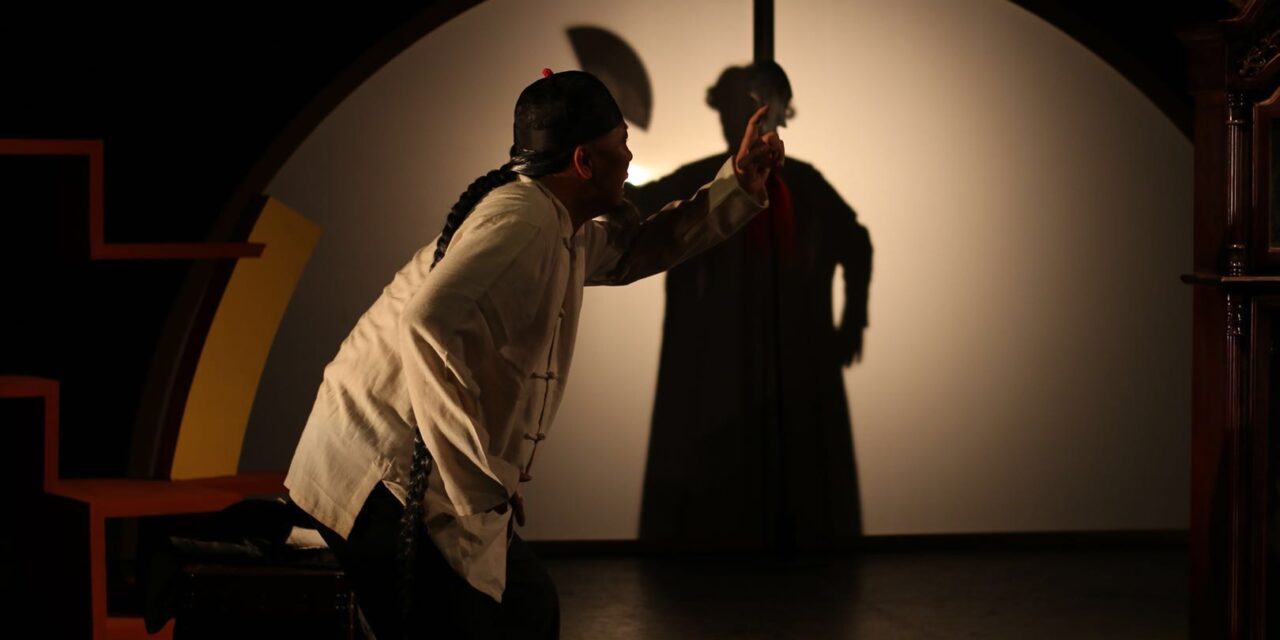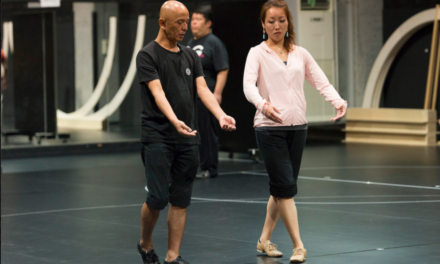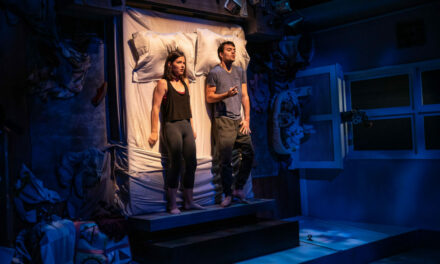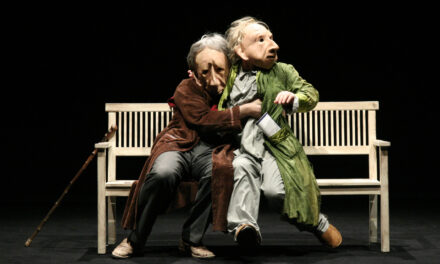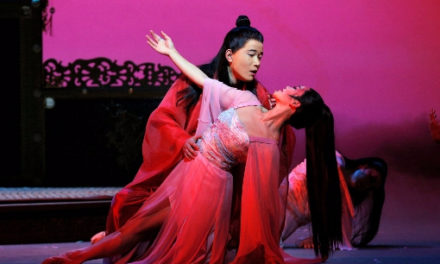This interview with Xuexi Li and Tianjiao Li was conducted by Xunnan Li. Both interviewees are part of The Clock God from the West production team, a play selected for the International Online Theatre Festival (IOTF) in 2020. Director Xuexi Li is a professional Peking Opera actor who specialized in the role of Laosheng (Old Male Character). Playwright and producer Tianjiao Liu has a master’s degree from the Communication University of China. The Clock God from the West is a melodramatic fantasy performed in Chinese, and first ran in 2017. The play includes elements of both traditional Chinese theater and modern Chinese drama. It heavily draws on movement and gesture from the aesthetics of traditional Chinese theater. At the beginning of the play, the main character also performs a short aria from Peking Opera as a soliloquy. The story is set in a three-generation Chinese family during the last few years of the Qing Dynasty. It looks at the conflicts and negotiations between the grandfather, son and grandson. Each of them represents a common obsession within contemporary society – career failure, wealth, and love. To inspire younger audiences to reflect on their own lives, Xuexi and Tianjiao ask them a question: if you could travel back in time, what would you like to change? The question is both easy and hard to answer because we have been spoiled by technology, and our desires have grown alongside technological development. However, not everything can be achieved by using technology, so we have learned to limit our dreams. This way, we are less likely to fail. The Clock God from the West provides us with an opportunity to think about the problem.
Xunnan: The play has a lot of movement and gesture from traditional Chinese theatre, but was performed on a modern stage. Did you find this difficult?
Xuexi: Quirky Moth Theatre is an emerging theater company. They focus on using traditional Chinese performance styles to experiment with modern plays. The Clock God from the West was the first play of this kind. It was also the first play the company produced. As the director of The Clock God from the West, I have drawn on my own life experience. I began training as a professional actor in traditional Chinese theater when I was 12 years old. I trained in singing, stage combat and performing in traditional Chinese theater styles. As an adult, I worked for a traditional Chinese theater in Hebei for years. Then, I did a master’s degree in directing modern drama at the National Academy of Chinese Theatre Arts. Because of this background, I have worked in both modern and traditional theater. I wanted to include both styles in The Clock God from the West. However, it was hard to work with the actors because most of them trained in modern acting styles. They had no idea how to express the aesthetics of traditional Chinese theater through gesture and movement. At first, their performances often looked awkward. I spent a lot of time training and teaching them what traditional Chinese theatre looked like. It was also difficult to convince our audience to enjoy the experiments. We did not aim to do a simple play in a “1+1=2” model. We wanted to do an organic hybridization. It was hard, and I had to be brave. But these are my personal artistic interests, and what I would like to do for traditional Chinese theater. Fewer younger people are interested in watching traditional Chinese theater. They often find it difficult to understand and they don’t enjoy the aesthetics. This production provided them with an easy way to experience traditional Chinese performing arts. On the other hand, loyal audiences of traditional Chinese theater often felt uneasy with the changes and innovative applications of iconic, classical acting. Despite these challenges, we have received a lot of support and appreciation. This has inspired us to keep working on producing this kind of theater.
Xunnan: What drove you to engage traditional Chinese theater with a modern melodramatic fantasy?
Tianjiao: I’m the playwright and producer. I also studied at the National Academy of Chinese Theatre Arts for four years. Though I’m not a traditional Chinese theater actor, I was inspired by it when I studied. I valued the experience a lot later on. This was my inspiration for producing The Clock God from the West. When I was a student, my tutor told me that you have to reflect on yourself before you engage with the world. Therefore, I decided to develop this idea I value and become a playwright. I started to produce plays related to my personal life. When I was creating the play, I was about to get married. However, I was slightly confused about the meaning of marriage. How would it affect or change the rest of my life? If I regretted it, would I be able to forget it had ever happened? Though we cannot change the past, what if we could? Bearing the question in mind, a fantasy began to emerge. I created the idea of a magic clock that can send you back in time. When it was performed on stage this question was posed to audiences.
Xunnan: I find thinking about the past is a reflective process. By coming up with an answer, I become aware of how I feel about my life now. Do you have anything else you would like to share about the play?
Xuexi: Yes, I agree with you. By directing The Clock God from the West, I also wanted to share the work of traditional Chinese theatre practitioners. The grandpa’s story is an example. The character used to be a prestigious Peking Opera actor. However, he has been forgotten given that Peking Opera has lost its popularity. When he got the chance to go back in time, he wanted to perform again. He was not asking for prestige, he had pure love for the art form. What he wanted to do was what traditional theater practitioners today want to do. Many indigenous Chinese art forms have disappeared over the past few, globalized decades. Traditional theater is one of them. Most younger Chinese people are unfamiliar with it. They believe traditional theater is no more mysterious and exotic than contemporary theater. As traditional theater practitioners, we cannot go back in time or change how contemporary audiences feel about traditional theater. What we can do is to find ways of surviving and coexisting with contemporary theater. Hopefully, The Clock God from the West provided practitioners with new ideas on how to survive in the contemporary theater landscape.
This post was written by the author in their personal capacity.The opinions expressed in this article are the author’s own and do not reflect the view of The Theatre Times, their staff or collaborators.
This post was written by Xunnan Li.
The views expressed here belong to the author and do not necessarily reflect our views and opinions.

